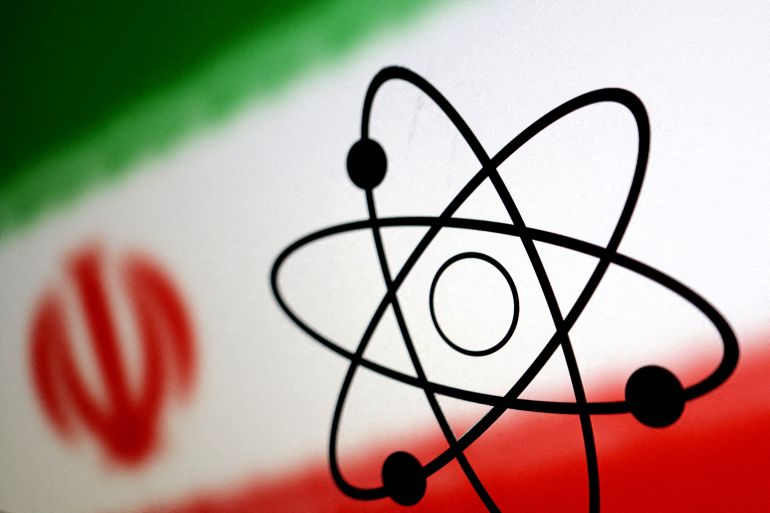Iran says European statement on nuclear talks ‘regrettable’
Germany, France and UK raise ‘serious doubts’ about Iran’s intentions to revive a 2015 nuclear deal, comments rejected by Tehran.

Iran’s foreign ministry described as “unconstructive” and “regrettable” a joint statement issued by Germany, France and the United Kingdom said they had “serious doubts” about Iran’s intentions to revive a 2015 nuclear deal.
The three European powers had earlier vented their frustration at Iran’s demand that the UN nuclear watchdog close a probe into uranium particles found at three sites, adding that it was jeopardising talks in resuming the agreement.
Keep reading
list of 3 itemsFamilies accuse EU of ‘ignoring’ four Europeans held by Iran
Iran rejects Western claims that nuclear position is ‘negative’
Iran’s Ministry of Foreign Affairs spokesperson Nasser Kanaani said on Saturday that “the three European countries are advised to play a more active role in providing solutions to end the few disagreements that remain,” state media reported.
Iran earlier this month sent its latest response to the European Union’s proposed text to revive the agreement under which Tehran had restrained its nuclear programme in exchange for relief from US, EU and UN economic sanctions.
Diplomats have said Iran’s response to the EU coordinator was a step backwards, with it seeking to link a revival of the deal with the closure of investigations by the International Atomic Energy Agency (IAEA) into the uranium traces.
“This latest demand raises serious doubts as to Iran’s intentions and commitment to a successful outcome on the JCPoA,” the three countries, known as the E3, said in a statement, referring to the deal’s full name, the Joint Comprehensive Plan of Action.
“Iran’s position contradicts its legally binding obligations and jeopardises prospects of restoring the JCPoA.”
Then-US President Donald Trump abandoned the deal in 2018 and re-imposed US sanctions, prompting Iran to start breaching the deal’s nuclear curbs. The United States’s regional allies, particularly Israel, have opposed the nuclear deal over fears Tehran may be seeking an atomic bomb. Iran says its nuclear programme is for civilian purposes.
The IAEA’s Board of Governors will meet on Monday, three months after already adopting a resolution urging Iran to give credible answers to the watchdog.
The UN agency said on Wednesday that it could not guarantee the peaceful nature of Iran’s nuclear programme, saying there had been “no progress” in resolving questions about the past presence of nuclear material at undeclared sites.
It said Iran’s stock of uranium enriched to up to 60 percent, close to wweapons grade had grown to enough, if enriched further, for a nuclear bomb and that Tehran had still failed to explain the origin of the uranium particles.
“Given Iran’s failure to conclude the deal on the table, we will consult, alongside international partners, on how best to address Iran’s continued nuclear escalation and lack of cooperation with the IAEA regarding its NPT (non-proliferation treaty) safeguards agreement,” they E3 said.